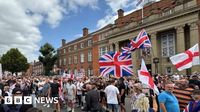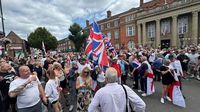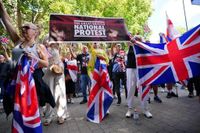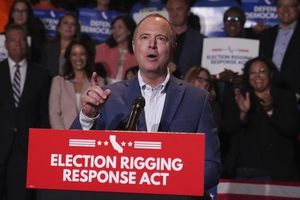Hundreds of protesters descended upon Nuneaton Town Hall on August 9, 2025, waving Union Jacks and St George’s Crosses, in a highly charged anti-immigration demonstration that echoed similar protests across England that day. The protest, which began at 1:00 p.m. BST and wound through the heart of the Warwickshire town, was sparked by the recent charging of two men—reportedly Afghan asylum seekers—over the alleged rape of a 12-year-old girl. The incident and subsequent fallout have ignited fierce debate over police transparency, immigration, and the right to protest in Britain.
The demonstration was one of several held nationwide, with coordinated marches taking place in cities such as Bristol, Bournemouth, Liverpool, Leicester, and Birmingham, according to Stand Up To Racism. In Nuneaton, the crowd—numbering in the hundreds—carried homemade signs and flags, and chanted anti-government slogans as they made their way through the town centre. Some banners read, "What about our girls’ human right to safety," while music blared from speakers, including renditions of "Rule Britannia," the national anthem, and even "Sweet Caroline," giving the event a distinctly British flavor despite its tense undertones.
Warwickshire Police maintained a significant presence throughout the protest, engaging with demonstrators and keeping a watchful eye on the proceedings. While the event was largely peaceful, officers did arrest a 17-year-old boy on suspicion of making threats to cause criminal damage. The force later confirmed that the protesters had dispersed by around 3:30 p.m. BST. "Thank you to all who worked with us to exercise their democratic right to protest in a way that was peaceful and lawful today," a police spokesperson said, as reported by BBC News.
Yet, the atmosphere was far from harmonious. A small group of counter-protesters, aligned with Stand Up To Racism and carrying placards that read "Stop the far right," assembled outside the town hall. They were soon outnumbered and, after being surrounded by the larger anti-immigration group, were escorted away by police for their safety. As they left, they were met with jeers and shouts of "scum," "get them out," and "paedo" from some in the crowd, according to eyewitness accounts published by The Independent. The scene spilled into the Ropewalk Shopping Centre, where shoppers paused to watch as police continued to separate the groups.
The protest’s origins trace back to comments made earlier in the week by George Finch, the 19-year-old leader of Warwickshire County Council and the youngest council leader in the country. Finch accused Warwickshire Police and the Home Office of "covering up" the immigration status of the two men charged in connection with the alleged rape, a claim the police have firmly denied. The men, Ahmad Mulakhil and Mohammad Kabir—both aged 23—face serious charges: Mulakhil with two counts of rape, and Kabir with kidnap, strangulation, and aiding and abetting the rape of a girl under 13, following the incident on July 22, 2025.
Finch’s allegations were quickly echoed by Nigel Farage, leader of Reform UK, who has been vocal in calling for police forces nationwide to disclose the immigration status of suspects charged with serious crimes. "We need to know who is being charged and what their status is," Farage insisted, according to The Independent. The sentiment resonated with many at the protest, who chanted slogans such as "Stop the boats" and "We want our country back," reflecting broader anxieties over immigration and asylum policies in the UK.
However, Warwickshire Police have maintained that they are following national guidance, which does not permit the sharing of a suspect’s ethnicity or immigration status once they are charged. This policy, meant to ensure fairness and avoid prejudicing legal proceedings, has come under renewed scrutiny in the wake of the Nuneaton case. "Once someone is charged with an offence, the force follows national guidance that does not include sharing ethnicity or immigration status," a police spokesperson explained to BBC News.
The debate has reached the highest levels of government. Home Secretary Yvette Cooper weighed in on the controversy, acknowledging the need for greater clarity. "We do think more transparency is needed in the information given by police," Cooper said, as reported by The Independent. Still, she emphasized that decisions about what details to release remain “an operational decision” for police forces and the Crown Prosecution Service, highlighting the delicate balance between public interest and the rights of suspects.
As the protest unfolded, the town’s leadership urged restraint. On August 8, the day before the demonstration, Finch released a statement urging attendees to act peacefully: "I am deeply concerned that protests could be hijacked by agitators who seek to cause disorder and division within our community," he said, in remarks carried by local media. Despite these appeals, tensions occasionally flared, particularly as the Stand Up To Racism group was taunted and followed through the shopping precinct.
The Nuneaton protest was not an isolated event. On the same day, the Metropolitan Police made at least 200 arrests at a demonstration in London in support of the proscribed group Palestine Action, underscoring a weekend of heightened activism and public unrest across the country.
The incident that sparked the protests—a horrific alleged crime involving a child—remains under investigation, with both Mulakhil and Kabir awaiting trial. The question of whether police should be compelled to reveal more about suspects’ backgrounds continues to divide opinion. Reform UK and its supporters argue that transparency is essential for public safety and trust, while others caution that such disclosures risk inflaming tensions and undermining the principle of a fair trial.
For many in Nuneaton, the events of August 9 were about more than a single criminal case. The protest tapped into deep-seated concerns about immigration, community cohesion, and the role of the police in a changing Britain. The competing chants of "Love not hate" and "We want our country back" captured the stark divisions playing out not just in Warwickshire, but across the nation.
As the dust settles, the community faces the challenge of healing and moving forward, even as the national conversation about crime, immigration, and transparency continues to simmer.






